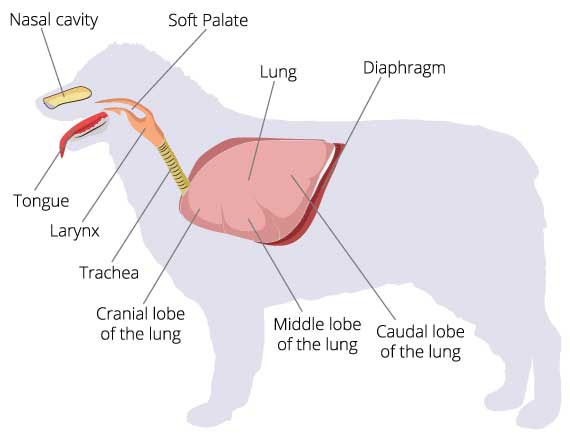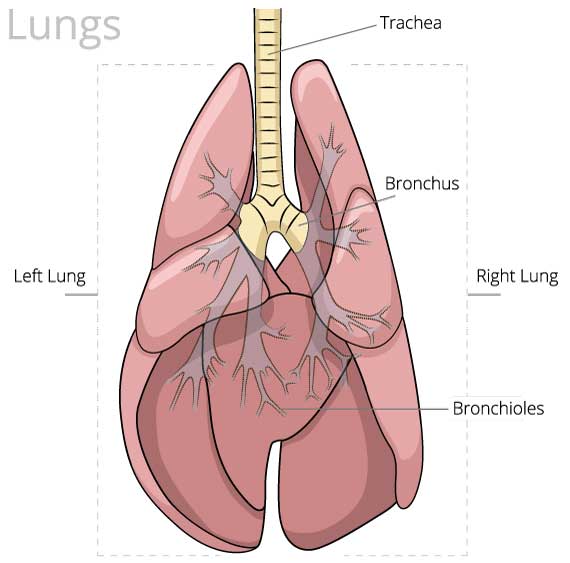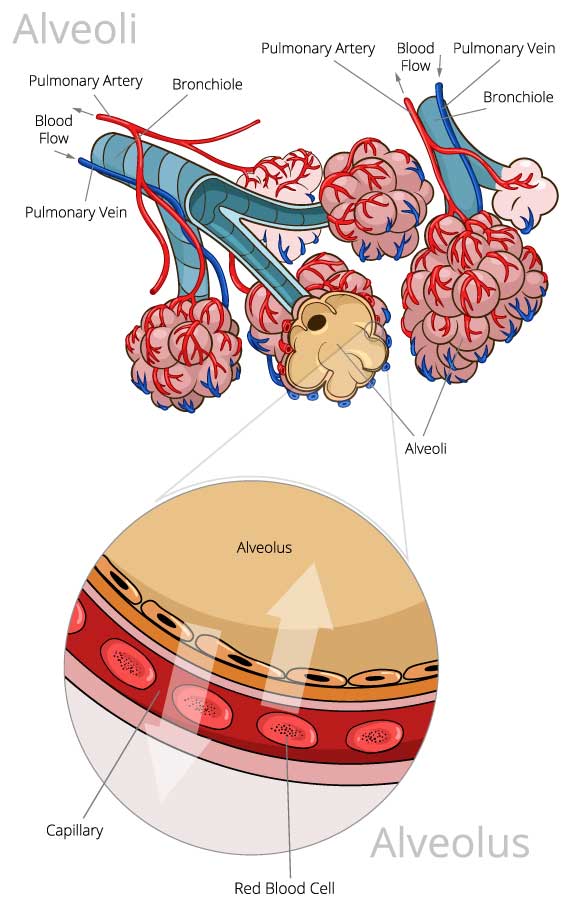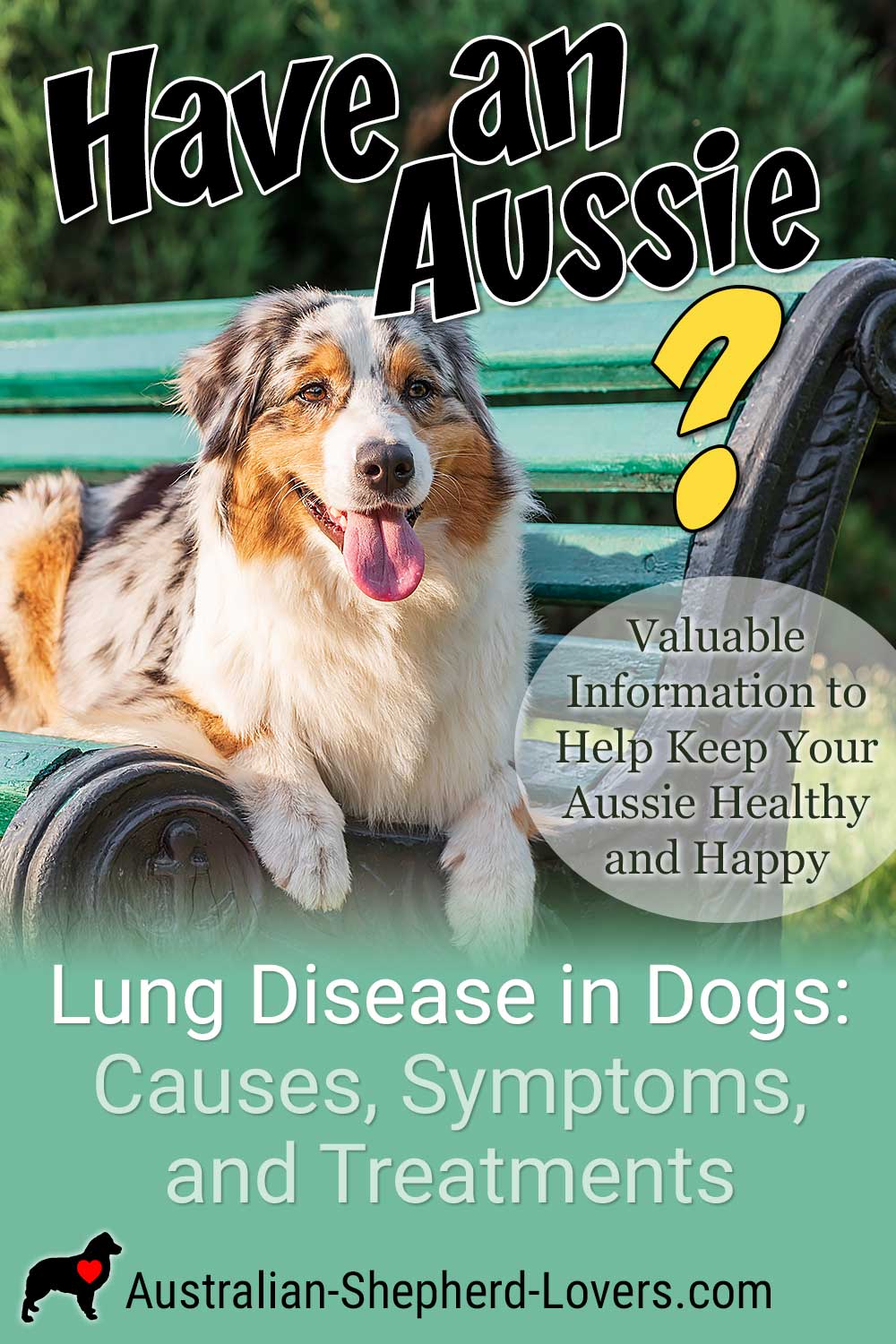
Lung Disease in Dogs: What You Need to Know to Keep Your Aussie Healthy
If you're a dog owner, you know how scary it can be to see your furry friend struggling to breathe. In this article, we explore the different forms of lung disease in dogs and the symptoms to watch out for. We also discuss the importance of maintaining good respiratory health and what you can do to help ease respiratory symptoms in your dog. Whether you're a new dog owner or an experienced one, this article provides valuable information to help keep your dog healthy and happy.
Lung disease in dogs can take different forms and the symptoms can be quite scary. Seeing your pup wheezing or struggling for breath would cause anyone to panic. Since lung issues can be uncomfortable and some may be quite serious, it's important to get your dog to the vet as soon as you notice any signs of distress.
A dog's respiratory system includes the large and small airways and the lungs and its main function is to deliver oxygen to the blood and remove carbon dioxide. When this exchange is disrupted by respiratory disease in dogs it can lead to serious illness. Without the proper oxygenation of the blood, the other organs won't be able to receive the oxygen they need and this can lead to multi-system failure, so maintaining a health respiratory system is crucial.
There are many different factors that can cause lung disease in dogs, including infection by viruses, bacteria, fungi or parasites. Impaired immune response or inhalation of irritants or toxic substances can also have a negative effect on respiratory health. Trauma or injury may lead to a punctured or collapsed lung and there are certain genetic abnormalities like narrowed nostrils or a narrowed trachea that may prevent the respiratory system from functioning properly.
Unlike many other illnesses, respiratory disease in dogs can be highly contagious, which is why it often spreads quickly in crowded areas like kennels, doggy day care centers and boarding facilities. If you do suspect that your dog is suffering from a respiratory ailment, it's important to avoid these types of conditions to prevent the spread of the illness.
Canine Respiratory System



Alexander Pokusay / stock.adobe.com | Anton Hout (Australian Shepherd sillouette)
Symptoms of Lung Disease in Dogs
The most common symptoms of lung disease in dogs include:
- Coughing that may be dry or produce mucus or blood
- Difficulty breathing
- Rapid breathing
- Gagging after coughing
- Nasal congestion and nasal discharge
- Exercise intolerance
- Fainting
- Wheezing
- Blue gums
- Signs of pain associated with breathing
If your dog begins to display any of these symptoms, you should take him to the vet as soon as possible for a full physical exam. The vet can perform a range of tests including chest and neck x-rays and blood gas analysis to determine the presence of respiratory disease in dogs and formulate a treatment plan accordingly.
Types of Lung Disease in Dogs
There are many different types of lung disease in dogs, some more serious than others, and treatment will vary depending on the specific issue. Some of the most common problems include:
- Canine Distemper Virus – Distemper actually affects multiple systems including the respiratory system and can spread quickly from one dog to another. Treatment options are limited for Distemper but your vet can provide a vaccination to help prevent against it.
- Chronic Obstructive Pulmonary Disease (COPD) – COPD is a long term respiratory disease in dogs that causes inflammation of the airways. It is irreversible but progresses slowly and treatments such as antibiotics, bronchodilators and chest physiotherapy can help to control symptoms.
- Kennel Cough – As the name suggests, this highly contagious disease caused by either bacterial or viral infection can spread rapidly through highly crowded areas like kennels. Antibiotics are usually successful at treating kennel cough but limiting exposure to infected dogs is crucial.
- Pneumonia – Another lung disease in dogs that causes inflammation, pneumonia can have a range of causes including allergens, lungworms, bacteria, viruses and aspirated food, fluids or foreign objects. Fluid therapy, antibiotics and chest percussion can all be helpful treatments for pneumonia.
- Lung tumors – In most cases, lung tumors originate in other parts of the body. Pulmonary adenocarcinoma is one of the few types of tumors that actually originates in the lungs and it occurs most often in older dogs. Unfortunately, most lung tumors in dogs are malignant and there is very little that can be done to successfully treat them, especially if they have spread.
- Colds and Flu – Like their human counterparts, dogs are susceptible to common colds and the flu and the symptoms are very similar. Usually, this type of respiratory disease in dogs can be overcome by the immune system but severe symptoms may need extra treatment with fluids, antibiotics and supplemental feedings.
Managing and Preventing Lung Disease in Dogs
While there are specific treatments for some forms of lung disease in dogs, there are also some general steps you can take to help ease respiratory symptoms including giving the dog plenty of fluids and adding humidity to the air to ease breathing. Antihistamines can be used to treat respiratory issues caused by allergies and diuretics may be prescribed if your vet suspects a buildup of fluid in the lungs.
You should never administer any medications except under a vet's orders as ensuring the proper dosage for your dog's size and build is critical. In more serious cases your vet may need to administer intravenous medication or even employ surgical intervention.
While lung conditions in dogs can certainly affect any breed, Australian Shepherds generally aren't as susceptible to it as some other breeds. This doesn't mean that your Aussie can't come down with the occasional cold, develop allergies or pick up some other kind of respiratory ailment, though, so you should always be aware of any of the signs of respiratory distress.
To sum up, being aware of the signs and symptoms of lung disease in dogs can play an important role in maintaining the health of your Aussie. By taking measures to promote good respiratory health, seeking timely veterinary care, and providing a safe and healthy environment for your dog, you can help prevent serious respiratory issues and support your pet's overall well-being. If you have any concerns about your dog's respiratory health, don't hesitate to consult with your veterinarian for professional advice and guidance.
For more information about Australian Shepherd health issues see the Australian Shepherd Health & Genetics Institute (ASHGI).
Have Dog Training Questions?
Check out these introductory dog training videos...
I want my dog to stop being aggressive.
I want some help training my new puppy.
I want my dog to stop barking at everything.
Get Australian Shepherd Info, Website Updates, Special Offers, and Cartoons...
FREE GIFT
You'll also receive a free copy of the ebook
My Everyday Dog Training Tools
by professional dog trainer Daniel Abdelnoor, "Doggy Dan"













 Loading Image...
Loading Image...